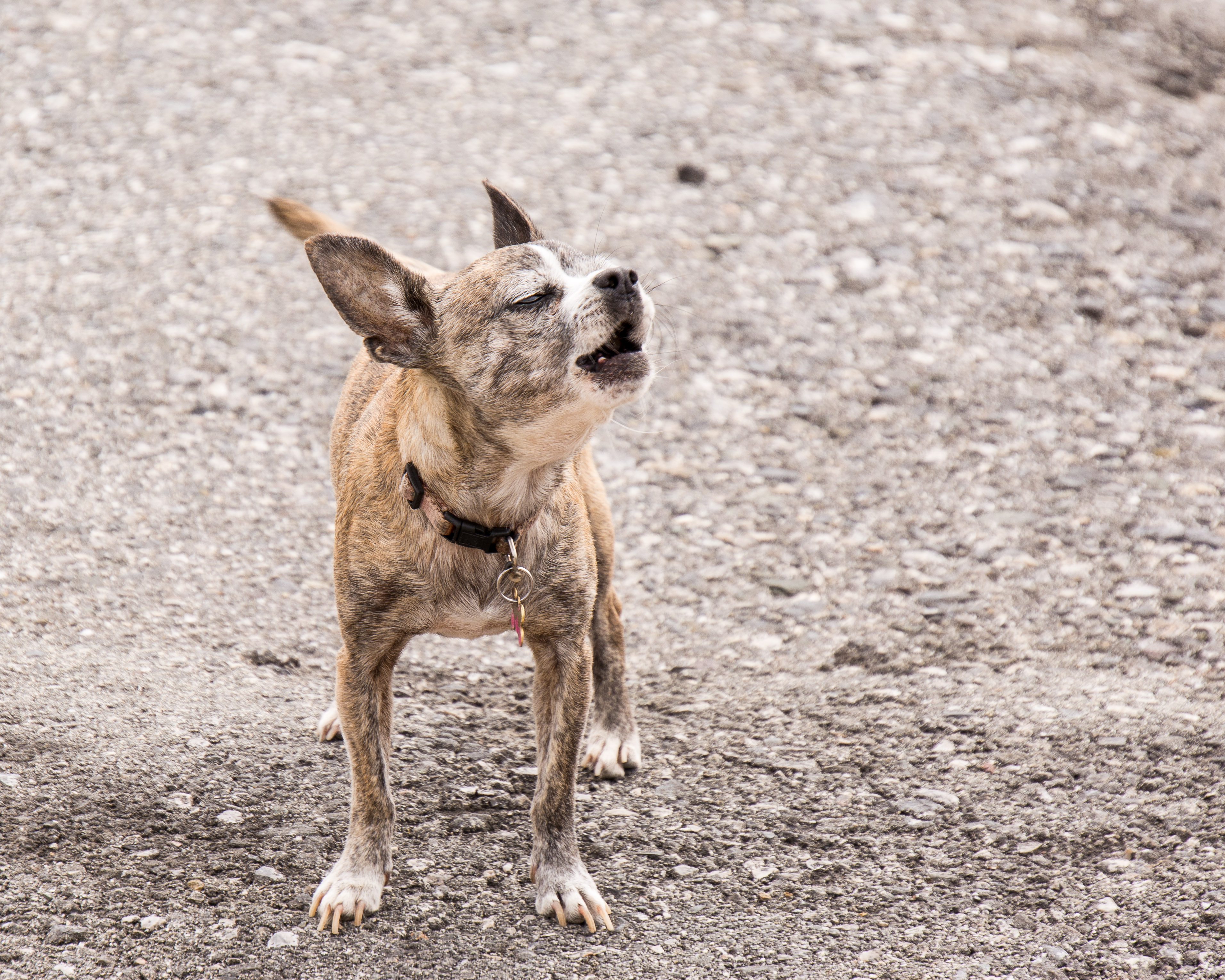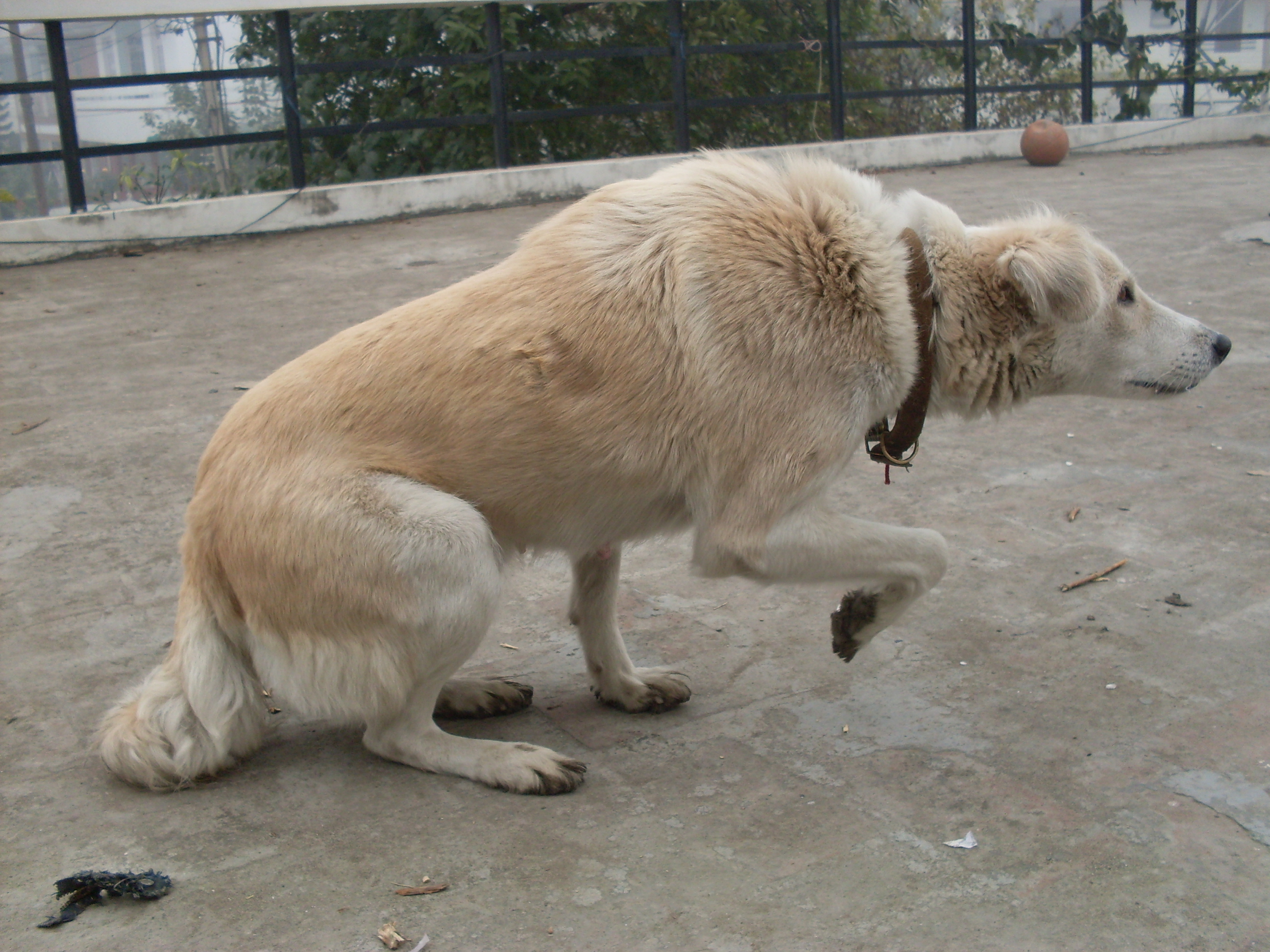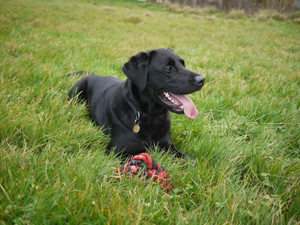Glass Pet Door's in Salt Lake City - Blog
How to Recognize Signs of Stress in Your Dog in Salt Lake City
Changes in your dog's daily behavior is worrying when you don't know what they're experiencing or how to help them. Here are some of the signs that can help you recognize stress or anxiety in your dog.
Digestive Issues or Vomiting

Gastrointestinal problems such as diarrhea and constipation or vomiting can be caused by a high level of anxiety in your dog. Though they are commonly attributed to food borne illness or intolerances, contact your veterinarian to discuss probable causes if the issue is ongoing or severe.
Aggression

Aggression in dogs is something to pay close attention to and could be a sign of an underlying problem. Anxious dogs often show their fear or try to defend themselves in a stressful situation by resorting to aggression. This can be accompanied or preluded by growling, a fearful stance, bared teeth, or submissive behavior. Luckily, there are treatments to help replace aggression with other behavior management techniques. Contact your veterinarian or trainer to discuss further action.
Barking or Whining

It's completely normal for dogs to express themselves through vocalization, but excessive barking and whining whether it's inside or outside could point to anxiety. Take care to notice what triggers your dog to be overly vocal. It is when strangers come over, when there's a knock on the door, around unfamiliar dogs, when you leave the house? This could lead to an answer to the problem.
Loss of Appetite

If your dog is experiencing a sudden loss of appetite, this may be something to worry about. Pets don't diet or fast like a human would. Refusing to eat is a sign that your dog could be experiencing some kind of stress that could lead to health conditions if a solution is not found.
Isolation and Avoidance

Most pups love being around people and socializing, and you know if your dog is naturally like this. While every dog needs some alone time every once and awhile, dogs that begin to constantly isolate themselves and avoid socialization with people or dogs for no reason is a telltale sign of stress and anxiety.
Strange Relaxed Behavior

Dogs usually assume a relaxed posture with their weight bared on all four legs. But if your dog shifts their weight to their rear legs, cowers, tucks their tale, or becomes rigid with no health issues that would cause them to do so, they may be experiencing stress.
Increased Sleeping

Dogs have pretty regular sleep schedules, and you're likely familiar with your dog's normal routine. If you notice your pup getting easily fatigued and sleeping for an abnormal amount of time, speak with your veterinarian about the possibility of it being caused by stress or anxiety.
Excessive Panting

Dogs pant when they're hot to release body heat and cool themselves down, much like we do when we sweat. If you notice them panting for no reason, maybe accompanied by their ears pinned back or whining, this is most likely a sign of stress. Be cautious if the panting suddenly stops, as your dog could become anxious enough to bite.
Unfortunately, dogs can't speak to us to tell us what they're experiencing, but it's possible to pick up on the signs they give us if we can recognize them. Knowing the signs of stress and anxiety in your dog will make it easier to get them help, and consider dog door installation from Glass Pet Doors to give them easy access to outside to play and release some of their stress in Salt Lake City.
What Our Customers Say
-
Latoya Frehner
Affordable and professional! -
Shawn Thompson
This company is fantastic. The Doggy Door that we purchased is amazing. It is expensive, but it has been 100% worth it. Having the dog be able to come in and out and not worrying about the temperature difference or snow storms or rain is fantastic. We had a crappy little PetSmart Doggy Door, and this is Lightyears beyond that. -
Vicky Kelm
Utah Pet Access is top notch! They are professional, did exactly what they said they would do, and delivered a high quality product. I work from home and they made my life so much easier with this installation. They went above and beyond to come to Evanston Wy when our local glass company wouldn’t. They are worth every penny! They always return phone calls timely. Highly recommended. A shout out to Trevor! -
Michael Weant
Utah Pet Access is hands-down one of the best pet door companies in the country. As the owner of a professional in-glass pet door company myself, I can confidently say that Utah Pet Access sets the standard for high-quality dog doors, expert installation, and customer service. Their knowledge of in-glass pet doors, energy-efficient solutions, and custom installations is unmatched. They take the time to do things the right way — from precise measurements to clean installs and top-tier materials. You can tell they genuinely care about their customers and their pets, not just getting through the job quickly. If you’re looking for a professional pet door installer in Utah, especially for in-glass dog doors or cat doors, you won’t find a better company. Highly recommend Utah Pet Access to any homeowner who wants a secure, durable, and beautiful pet door solution. -
Jeremy Larkin
These people are amazing! I called around to so many different places to have a dog door put in on my french style glass doors, and they were by far the cheapest door. They were very professional and polite and very fast to install the door. I would definitely recommend them to everyone! -
M Palmer
I’ve had the pleasure of working with this company twice now and both times they went above and beyond to make this process seamless. They are professional and prompt and keep everything clean and effortless. The quality of work is spectacular. I would highly recommend them for large and small jobs for your pets needs. -
ambir widdison
The door is life changing for our family and our dogs. The door was put into our existing window panel door and looks amazing. Great company to work with. -
Julie Wilson
All of us, especially the doggie, LOVE the door we got from Utah Pet Access. We’ve had the door for 2 plus years now and it’s still like brand new. Our pet door is on the north side of the house and we get lots of weather from wind and storms. Having the door has never been an issue. It’s a high quality product. HIGHLY RECOMMEND! -
Paula Chase
Utah Pet Access was so great to work with! My dog door was completed quicker than was estimated and with great customer service. My only regret, is I should have done it sooner! -
Lauren Michaud
Everyone I worked with was very professional and got things done in a timely manner. Me sad my pups are very happy with the door already! After about a week of practice, they were using it like champs. -
Lane Porter
They were super helpful .The door looks great and their follow up has been wonderful as well. -
Kirstin Anne Workman
I highly recommend Utah Pet Access. We received a dog door installation earlier this year and I cannot express how pleased I am with the product. Our rescue pup can now easily enter and exit our home without me needing to assist him. We also got the lockable door, which has also been very useful. The service was great and quick, and they have a great warranty on their product to ensure that if they are damaged or malfunction, they will fix/replace it. So far, we have not needed any fixes or repairs in it. Very happy with our purchase, and I would recommend them to anyone on the fence about it. -
Heather Singleton
My experience with Utah Pet Access was great! They responded to my questions in a timely manner, told me exactly what to measure, sent me invoice once they got the measurements, and then made it and sent it out. It came faster than they said and it was a perfect fit. The price was reasonable for being custom made. I would highly recommend Utah Pet access to anyone! -
Maureen Quinlan
Great team, prompt and friendly. The door looks perfect. Our little Wiggles loves her pet door. -
Demi Rainaldi
We have used Utah Pet Access at both of our houses. I love that they bring a new door with the doggie door cut into the glass and we get to keep our original glass. At our first house, we had to have a custom glass insert made because of the plastic pieces that were in the glass door. It was a perfect match to the rest of the door. This was great when we sold our house to give the new owners the option of putting in the old door. They are quick, easy to work with and very professional. I would highly recommend them! -
Shaleen Doctor
Best investment I’ve made! My dog loves the freedom of his new doggie door. -
Doug Maud’Dib
they did a great job. New pet door works well -
Monica Higgins
My puppy and I love the new doggy door. He loves being outside. This door gives him the Freedom to go in and out without me having to let him out and let him in. Utah Pet Access thank you so much. We love our doggy door! -
Jamie Jenkins
We love our Utah Pet Access dog door! It has been a game changer for our family! The company was great to work with. They showed up on time, were professional, and did a great job! -
Dan Ludlow
Great product, great service! -
Monica Acton
Their free in home estimate was great. All my concerns and questions were answered. Installation was quick and our pup loves her dog door! Couldn’t ask for a better experience -
Matthew Smith
I had a wonderful experience with Utah Pet Access. From the initial visit, to installation was magnificent. It did take a bit of time to get the door manufactured, but well worth the wait and my two golden doodle pups absolutely love it and so do I, well done Utah Pet Access. -
Emily Slater
We love our dog door that you installed in our sliding glass door. Great quality. Our dog loves it also. -
Connor
Very good experience. They installed my glass window door very quick and were very reasonably priced compared with other bids I received. I would recommend. -
Kim Grant
Fantastic service and a great pet door. Don’t be fooled by low-price dupes. We needed a sturdy door for heavy traffic by three large dogs. Very happy with responsiveness and professionalism. -
George Richards
Excellent installations and the tecnician was pleasant to work with. All in all we are avery pleased with the door and the service. -
Lindsey Hurst
We love our pet door from Utah pet access! They were so helpful, quick, and everything was very easy. I love that it locks and looks seamless with our door. -
Jessica Wian
Utah Pet Access installed a in glass pet door for me. I have had it a few months now and it has been amazing! -
Sandra Walton
We’ve had our doggy door for a few months now and we love it. The order for the door took a couple months but the installation was really fast. We are very pleased and would recommend Utah Pet Access if you are looking for a custom doggy door. -
Kevin Holt
Utah Pet Access was amazing to work with. They respond in a timely manner and answered all of our questions. Thier product is simply awesome and we and our dog love it. -
Matthew Neighbour
Great product, very professional install. Looks great highly recommend. Staff were all freindly and didn’t mind the furbaby bothering the installer :) -
Big Changes
Great experience with Utah Pet Access. The owner and the employees are so patient and helpful. I originally thought we wanted a doggie door in the wall. There was only one spot that it would work since we have a lot of windows. The company installer came the day we scheduled the install and while at our house my husband and I changed our minds and wanted the glass door doggie access instead . The installer who is one of the owners was so patient and friendly. So instead of installing the wall doggie door he measured for the glass doggie door. We couldn’t be happier with how the whole experience went! We love the doggie door and so do our pups. -
Roger H
After we had a new sliding door installed we looked at several options for a dog door. We settled on Utah Pet Access. They installed a dog door in both the glass door and screen. The entire process from initial bid to installation was excellent as us their finished product. Though there are other similar products are available online I like the idea Utah Pet Access comes out and takes the required measurements and they are local. If you’re needing a dog door I would highly recommend Utah Pet Access over a panel that installs between the door and frame. -
Angela Abel
Great service and product. The install was quick and great quality. I have had the door for several months now and it works fantastic. One dog struggled with my old bottom flap door but is much better with the middle swing opening. Thanks! -
Ana Esquibel
We ALL are really enjoying the dog door from Utah Pet Access! Including our two giant furbabies! It has made life much easier for us! Thanks Utah Pet for making things easier! -
Isaac Pugh
Utah Pet Access was awesome to work with, I highly recommend them to anyone looking to have a pet door added. The measuring process was super quick, the pros were very communicative on how long it would take to get our large glass section made, and when they could get it installed. Once it was ready the install pro came out and had everything finished within 30ish minutes! They even replaced the adhesive on my security sensor and reinstalled that on the door for me. Will definitely be using them again in the future! -
Rozie Riley
I am so pleased with my dog door. Trevor was amazing to work with. I am no longer a personal door greeter 24/7. Hallelujah! -
Tatia Beaslin
So glad we decided to have Utah Pet Access install a pet door in our glass patio door. It looks so classy and is so nice to not have to let Zoe in and out all day! The process was super easy and I was only without my patio door for about 20 minutes! I was shocked they could install it so quickly!!!! If you’re on the fence about a dog door — do it with Utah Pet Access! -
Miriam Armstrong
Thank you for helping Milo learn how to get through the doggie door! He is so confident at doing it now. -
Janae Thompson
Excellent quality, professional installation and looks great! Great communication and quality customer service. -
Kelly Hardman
Great service, excellent work! Highly recommend Utah Pet Access.


